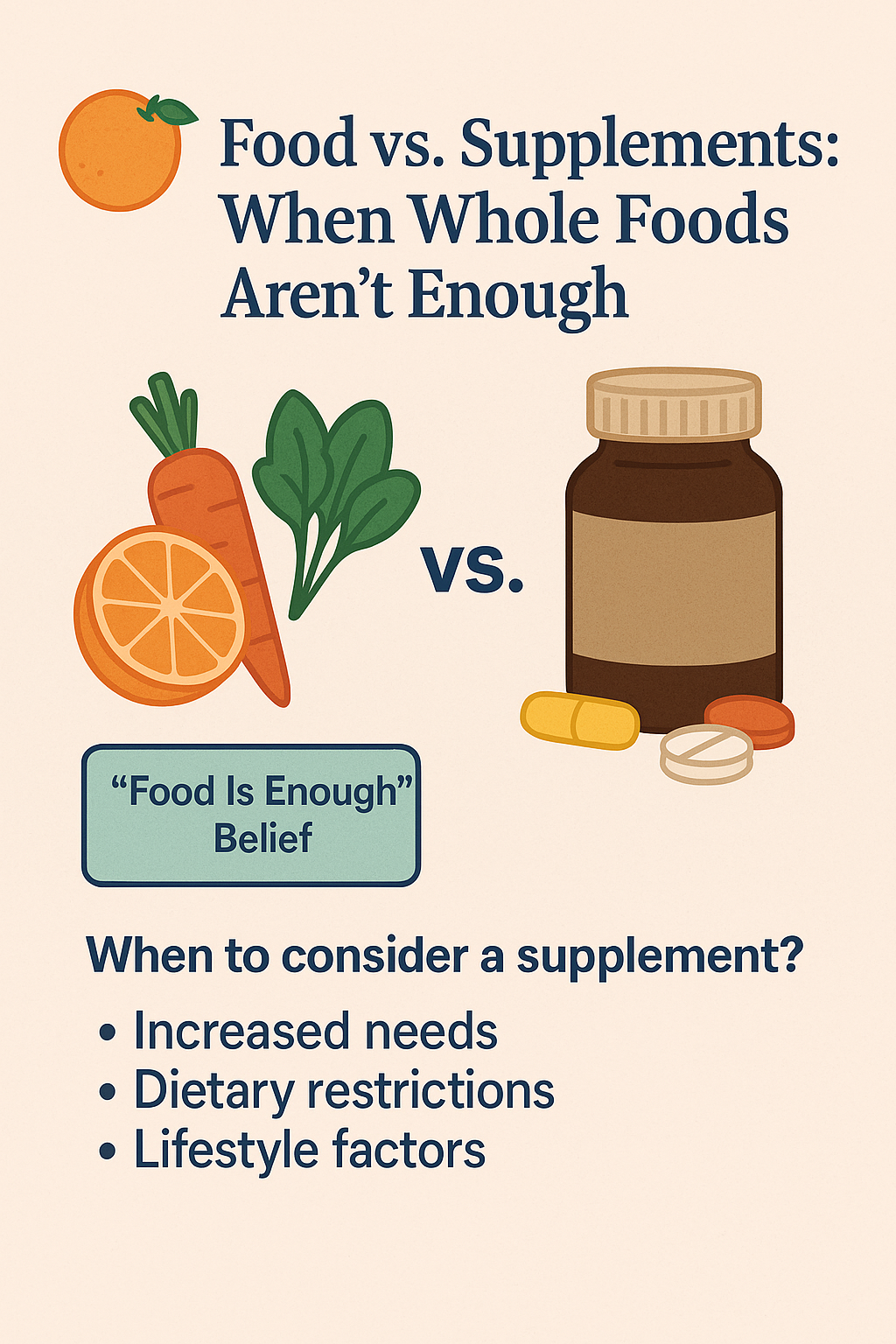
Food vs. Supplements: When Whole Foods Aren’t Enough
Share
“Can’t I just eat healthy and skip supplements?” It’s a fair question — and the answer is: sometimes, but not always. Whole foods do provide fiber, phytonutrients, and balanced nutrients that pills can’t fully replicate. But life isn’t a perfect nutrition plan, and studies show even balanced diets can have gaps.
A study published in Nutrients (2017) found that despite following dietary guidelines, many adults still fell short on vitamins D and E, magnesium, and calcium — nutrients that are harder to get from food alone, especially with busy lifestyles or dietary restrictions.
Reference: Bailey RL, et al. "Estimation of Total Usual Calcium and Vitamin D Intakes in the United States." Nutrients. 2017.
When to consider a supplement? If you have increased needs (like pregnancy or aging), dietary restrictions (vegan, gluten-free), or lifestyle factors (shift work, frequent travel), smart supplementation can bridge the gap.
Key Takeaway: Whole foods first, but supplements can fill the blind spots. Choose high-quality, clean-label products — and talk to your doctor before adding anything new.
